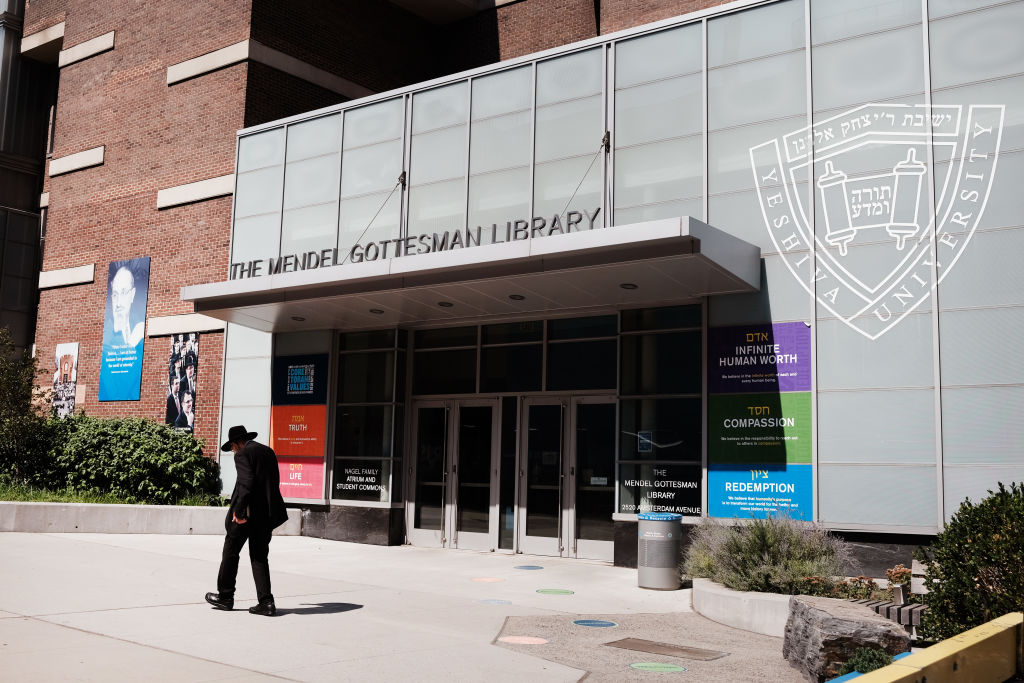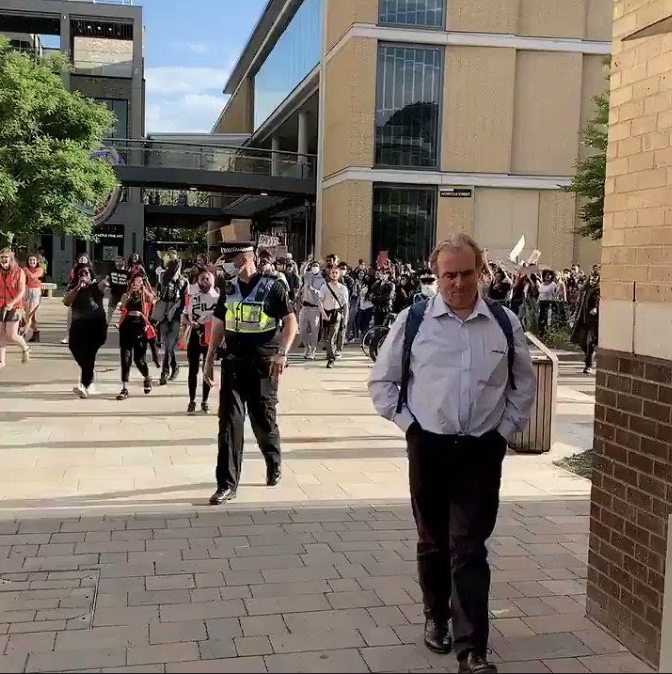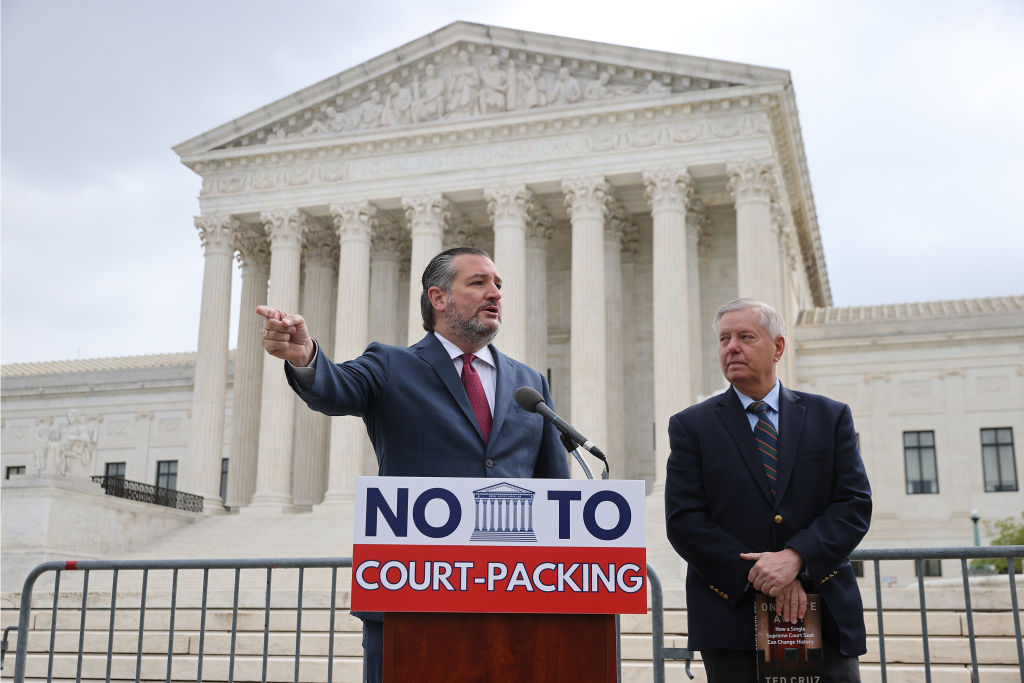Conservatives and liberals alike let them do it.
Pride Clubs Everywhere

The Supreme Court punts on a key question of religious liberty.
The United State Supreme Court recently decided not to hear the case of Yeshiva University v. Pride Alliance, opting instead to send the case back to the New York appellate courts. Citing the New York City Human Rights Law (NYCHRL) which forbids discrimination based on sex or gender, Pride Alliance charged YU with violating state law by not officially recognizing their club. Citing the First Amendment to the U.S. Constitution, which protects religious freedom, the Jewish university defended its decision as a matter of staying faithful to their religious teachings.
Liberal justice Sonia Sotomayor joined the majority, which punted on the matter just a few days after granting an emergency petition to YU that allowed them to prohibit the club while the matter was being decided. Now, the university must reverse their position and officially recognize the club—or suspend all club activities across the campus—while they wait for a decision from the New York Court of Appeals, which, as Justice Alito writes in the dissent, “could take months, and during all that time, the University would be required to continue to make the statement about Torah that it finds objectionable.”
Though the writers of the majority opinion pretend that the possibility exists for YU to win its case on a second attempt, there’s little reason to think this would happen. Once more, Alito rightly remarks, “the Court of Appeals has already denied Yeshiva’s application for interim relief,” and the details of the case haven’t changed.
Just as a Christian baker was forced to bake a cake for a same-sex wedding in the infamous Masterpiece case, a Jewish university could now be forced to sponsor an LGBTQ club. Some may take this as a win for tolerance and pluralism, but it’s really a question of power. Members of the Pride Alliance must be given official sanction by the Jewish faculty and student body of YU, though the group’s mission is in direct conflict with the constitutionally protected exercise of Yeshiva’s religious expression. Yeshiva must officially legitimize the Pride Alliance’s definitions of marriage, sex, and identity, which run directly against orthodox religious doctrine.
The leaders of Yeshiva University did not identify and punish LGBTQ people on their campus for being who they are; they simply refused to endorse a club that contradicted their faith and the mission of the institution. As Alito notes, “The University therefore denied the Alliance’s request for formal recognition but made it clear that students could ‘socialize in gatherings [as] they see fit.’” The Pride Alliance could meet and have their club, they just couldn’t force the university tacitly to endorse its views.
The Supreme Court is effectively saying that LGBTQ ideology trumps the religious freedom of Orthodox Jews at YU. This ruling extends government power over Americans’ beliefs and behavior, in line with the prevailing liberalism of modern culture, which espouses a moral relativism that exalts supposed victims of oppression and equates claims of objective truth with bigotry—what Pope Emeritus Benedict XVI regarded as “the dictatorship of relativism.”
If Chief Justice Roberts and the rest of the majority think they have avoided setting a precedent by sending the case back instead ruling on it, they are mistaken. In effect, they have just made religious liberty a matter for the states. One may live out his faith in Texas or Florida without any problems, but now he will need be prepared to affirm various leftist dogmas and reject certain tenets of his faith if he lives in New York or California.
Moreover, with the pending vote on “The Respect for Marriage Act,” which would federally codify same-sex marriage, it is likely that LGBT organizations will extend the reasoning of the Pride Alliance, arguing that churches that refuse to bless same-sex unions are guilty of discrimination. Should the act become law (the vote in the Senate has just been delayed), it would create the same basis as the NYCHRL, outlawing any form of perceived discrimination of LGBTQ individuals.
This imminent threat to religious freedom demands action from Americans of goodwill, who must vote for Senate candidates who oppose the Respect for Marriage Act. And they need to support institutions that support traditional beliefs and reject ideologies that undermine them. As presidential speechwriter William McGurn argues in the Wall Street Journal, this matter is not exclusive to Jews, or even people of faith. All Americans, religious or not, have a right to dissent from ideas that contradict their core beliefs and values.
The American Mind presents a range of perspectives. Views are writers’ own and do not necessarily represent those of The Claremont Institute.
The American Mind is a publication of the Claremont Institute, a non-profit 501(c)(3) organization, dedicated to restoring the principles of the American Founding to their rightful, preeminent authority in our national life. Interested in supporting our work? Gifts to the Claremont Institute are tax-deductible.
Biden’s “Commission on the Court” quietly sets the terms for the next power grab.



